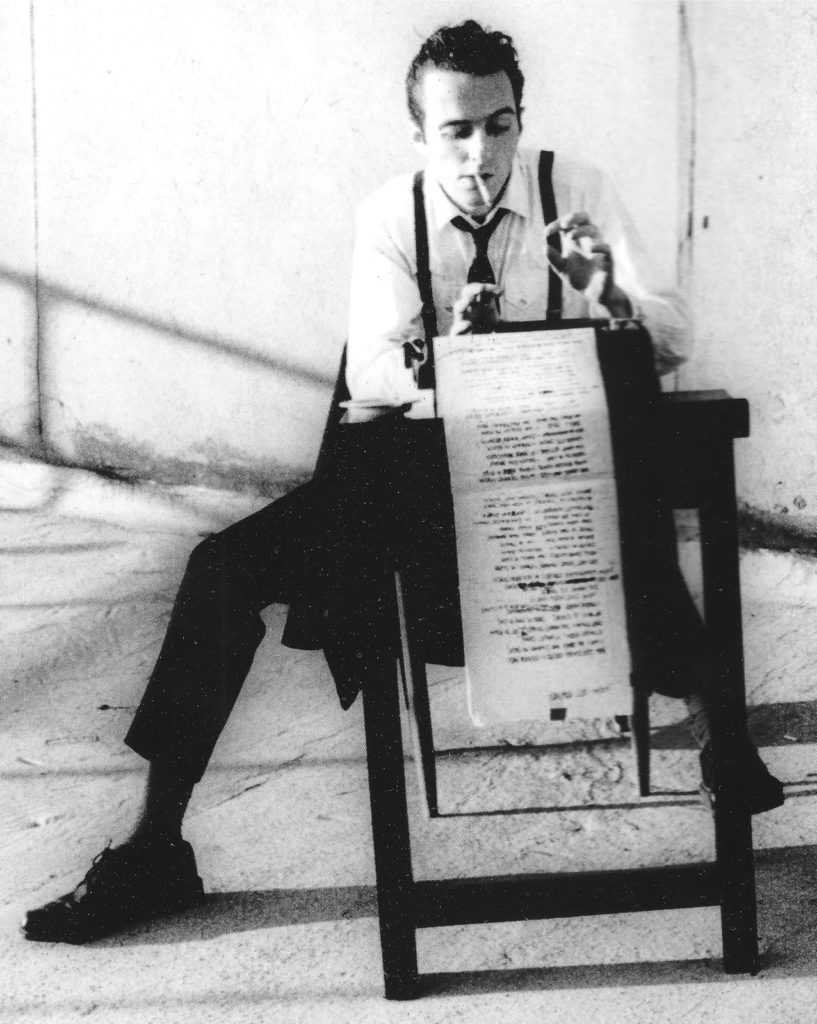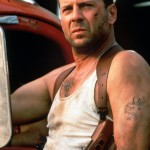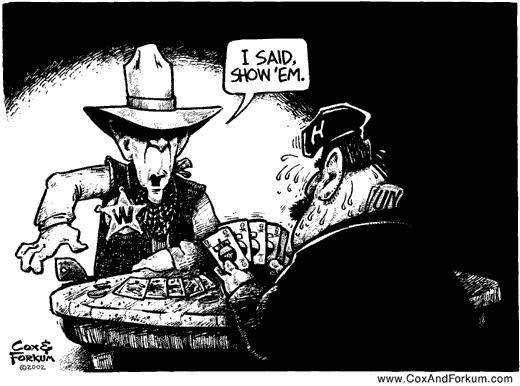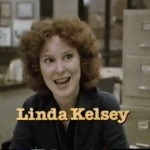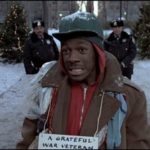Every real Clash release is essential, but “essentially” only mostly the “real” ones.
I think people ought to know that we’re anti-fascist, anti-violence and anti-racist. We’re against ignorance. – Joe Strummer

The Clash
Right now likely for a brief period and perhaps never again you are on my website Brad Laidman: Elvis Needs Boats.
If you look at it’s sparse layout it brazenly glorifies two things. Elvis Presley and me. Subtly, and I’m rarely subtle, it also pays joint homage to the love for two mothers by their sons Gladys Presley and my own.
The name comes from the best joke ever written about Elvis Presley by Mojo Nixon in the song “Elvis is Everywhere” to again make me look hip and clever if someone actually gets the reference.
This essay was actually going to be about Elvis Presley, but it is currently so long and out of control that it has been put aside until I can tame it.
My site only references one other artist or group, and perhaps it is yet another attempt to show how clever I am, by referencing the greatest album cover in this history of rock and roll, “Elvis Presley,” his debut, to the homage paid to it on perhaps the greatest double album in rock and roll, “London Calling.” Now had I been able to steal a better picture of the second the comparison would have been made better, but again the color scheme of the sites heading is clearly no coincidence.
So was it another joke to again boast about my ingenuity?
I’m a huge fan of the Beatles and had I been a bigger one perhaps I could have done this.




But I rarely if ever joke about Joe Strummer and the Clash.
Like the Kinks, this is the story of a pretty financially incompetent band, but the Clash made the Kinks seem like they were run by Warren Buffet. The Clash were perhaps, and also perhaps mostly on purpose, the most financially incompetent rock and roll band of all time.
Joe Strummer had a strong if sometimes odd sense of morality.
Strummer was born John Graham Mellor in 1952.
For a few years he had the audacity to do something that even Bob Dylan never dared to do, he insisted that people call him “Woody”

In many ways, Joe would have been very happy to be just like Woody Guthrie and live his life as a busking hobo. You take your guitar wherever you go and whenever you feel like it you throw your hat down and hope people toss in some spare charge and if you are lucky some paper currency.
He would at various times in his life refuse to play big gigs and return to busking.
Another guy loved the idea of Woody Guthrie and busking, but he couldn’t imagine doing it without being accompanied by the sound of his other idol’s electric guitar, and for many years that was the only way you would hear Billy Bragg play live or on record.
The first Billy Bragg song I ever heard was one of his first, it was called “A New England,” for some reason when my best friend and I moved into our fraternity room together my sophomore year we listened to the English EP it came from for perhaps four hours straight while we painted that room. So we probably heard “A New England” about 15 times that night.
We had the best room in the house, it had two sections and a bathroom with a bathtub. After my friend, first kicked me out for the night and slept with his future wife/ex-wife, he took a tiny room and left me there alone for two years of privilidged comfort.
I don’t know why, but a lot of significant times in my life were marked by listening to Clash songs over and over again ad nauseam, which is sort of the wrong term because I was pretty much insistent that they be played exactly that many times in a row and I did not get sick of them.
In 1982, another good friend of mine and I went to a summer debate camp at the University of Kentucky, I had gone to one the year earlier, but these two weeks were more of my first taste of true freedom and we started them off joyfully frolicking around listening to a song we had discovered called “London Calling” about 27 times in a row, throwing “snaps” at each other until they ran out.  By the end of the year, I had fallen deeply in love with my debate partner, and we won a regional tournament, which qualified us for the National Tournament, and then we won the state tournament. This meant a long road trip to and from “Kansas City” with her, which sounds magnificent, except for the fact that, while I was possibly her closest friend she was more in love with someone else than anyone I’ve ever seen in my life. She was more in love with her boyfriend than Elvis was in love with his mother. He was a freshman in college that year and would sometimes judge debate tournaments for our team and when we dropped him off at the University of Toledo she would cry for the entire two hours that it took us to get home.
By the end of the year, I had fallen deeply in love with my debate partner, and we won a regional tournament, which qualified us for the National Tournament, and then we won the state tournament. This meant a long road trip to and from “Kansas City” with her, which sounds magnificent, except for the fact that, while I was possibly her closest friend she was more in love with someone else than anyone I’ve ever seen in my life. She was more in love with her boyfriend than Elvis was in love with his mother. He was a freshman in college that year and would sometimes judge debate tournaments for our team and when we dropped him off at the University of Toledo she would cry for the entire two hours that it took us to get home.
Still I was so in love with her that I lied and said that I liked Hall and Oates (actually now I sort of do like Hall and Oates). When the trip and the tournament, turned out to be less than what I dreamed of I walked into the host school’s cafeteria and put $4 in quarters in the jukebox and played “Should I Stay or Should I Go” 16 times. I’m not sure if I wanted to hear it that many times or if I wanted to make everyone else hear it that many times, but it did indeed happen.
For a very long period of time the only way to see Joe Strummer play (and a ton of people were begging him to do so) was when he was lurking in the background on stage with the Pogues over perhaps the course of eight or more years.
The Pogues were a great band when Shane McGowan was able to drunkenly find his way to the show (whether the shows were better or worse the more or less sober he was is something his fans will likely debate for hours), but this was roughly the equivalent of John Lennon leaving the Beatles to be the backup rhythm guitar player for Badfinger.
I’m pretty sure he’s on stage there, but I can’t find him, and the Pogues had up to eight “real” members of the band on stage usually. It’s just odd for perhaps one of the most passionate, magnetic frontmen of all time to be doing.
He’d make brief appearances in odd films made by oddball directors
He added some stuff to former band mate and co-writer Mick Jone’s post-Clash band, Big Audio Dynamite, but it wouldn’t be advertised at all.
He wrote and performed the song “Love Kills” for the movie “Sid and Nancy,”a film I’m still so ambivalent about that I once titled my essay on it “The Funniest Tale of a Mortal Descent into Heroin Oblivion Ever.”
Sometimes you’d just hear things that sounded like Mark Twain tall tales like he decided to run a marathon with no preparation, despite the fact that he had been a chain smoker forever, which probably wasn’t true, but did happen a couple times randomly when he was with The Clash.
“That One Time Joe Strummer Ran A Marathon”

In a 1999 interview with Steppin’ Out magazine, Joe Strummer, talked about his “training regime”:
Q: Didn’t you once run in the Paris Marathon?
Joe: Yep. I ran three of them.
Q: Correct me if I’m wrong but is it also true that you never trained for any of them?
Joe: You shouldn’t really ask me about my training regime, you know.
Q: Why?
Joe: Because it’s not good and I wouldn’t want people to copy it.
Q: Don’t make me beat it out of you.
Joe: Okay, you want it, here it is. Drink 10 pints of beer the night before the race. Ya got that? And don’t run a single step at least four weeks before the race.
Q: No running at all?
Joe: No, none at all. And don’t forget the 10 pints of beer the night before. But make sure you put a warning in this article, “Do not try this at home.” I mean, it works for me and Hunter Thompson but it might not work for others. I can only tell you what I do.
Did Joe Strummer actually run the Paris Marathon in 1982? Who knows. Joe liked to stretch the truth and make some things up from time to time, but it honestly wouldn’t surprise us if Joe woke up one morning after a night of drinking and said I’m going to run a marathon today, and it wouldn’t surprise us if he didn’t register, and it wouldn’t surprise us if he finished.
Joe Strummer died December 22, 2002 of an undiagnosed congenital heart defect. It was a complete shock to everybody especially because he had finally returned to making music, and good music too with his band the Mescaleros. His estate was worth about a million pounds, which doesn’t sound so bad for an artist that never really made any money. This is a better article than I could write about what happened after he perhaps kicked Mick Jones out of the Clash in 1983 until he finally reappeared with his new band in 1999.
Joe Strummer: The Struggle after The Clash
It appears that after the Clash imploded he didn’t really know what to do with himself, and perhaps lost all confidence in himself, which is incredibly perplexing for someone who was perhaps the most adamantly, stubborn and publicly confident person publicly you could possibly imagine for at least the six years where he rudely broke through every barrier he could find in his peak even if he had to wander around determined to find ones to confront.
Clearly energised by music again, Strummer told me he had spent much of the last decade “running into brick walls”. It seemed bizarre that such an explosively dynamic, fiercely charismatic performer should have suffered such a prolonged slump.
“Yeah, but those are probably the people who are the most unconfident, really,” Strummer shrugged. “The ones who give it the mouth and trousers. I’m like that. Like, if you stormed in here and said the new record was rubbish, I would probably quit.”
Tellingly, there were big offers if he had just agreed to reform the Clash again especially in 1994.
“It was five million dollars for 50 gigs or something. But you can’t put something together for money that was originally for an idea. We could probably knock up a few gigs but it’s not going to do anything for the world, is it? Creatively you’re really The Searchers on a chicken-in-a-basket tour. If you’re confronted with a choice: take one million dollars for the death of an artist, or you can live as an artist forever – maybe – you’re gonna take the second option.”
No one could have criticized him for taking that money. No one ever really thought he would. Had he reformed the Clash he probably would have insisted that they just show up randomly and busk, which is actually how he started off the disastrous Clash Mach II after the departure of the irreplaceable Jones.
Of course, had he lived another six months or so he would have been there when his band was inducted into the Rock and Roll Hall of Fame, but perhaps it was fitting that he wasn’t.
I was in my grandparents basement when I head that he died. I was very sad. Sad that he was dead, but perhaps even sadder that I was in Cleveland and no one else seemed to care. Had I owned a polka radio station that day everything would have stopped and nothing but Strummer material would have been played for at least 24 hours. There may have been some activity on a college radio station or two, but the way I remember it in the “birthplace” of rock and roll, home of WMMS, station that sometimes legitimately, mostly named the “Best Large Market Radio Station” in the country by “Rolling Stone” magazine nine years in a row, three or four stations in town may have said, “We just heard Joe Strummer died” and played “Rock the Casbah” once.
This was said in “Rolling Stone, “That heart of his always worked too hard,” said Pete Townshend. “I will really miss him.”
I remember Townshend saying at some point how sad he was that Joe had died right when he had finally refound his path. Pete Townshend at his peak was one of the most arrogant men alive, and had a very high opinion of his very huge band. When Pete Townshend saw the Clash at their peak he felt the same way he did the first time he saw Jimi Hendrix play guitar, Salieri to their Mozart.
In February of 2003, this happened at the Grammy’s:
It seems impressive especially at the Grammy’s, but a very similar money plagued artist said this upon becoming more and more irrelevant:
Orson Welles: Now I’m an old Christmas tree, the roots of which have died. They just come along and while the little needles fall off me replace them with medallions.
“Rolling Stone” in 2016 described it like this:
A song as caustic as “London Calling,” with its apocalyptic images of nuclear meltdown, police brutality and – gasp! – the demise of Beatlemania, hardly seems appropriate fodder for an event as staid and slick as the Grammys. Then again, Joe Strummer, the Clash leader who had passed away just months prior to the 45th awards show, was hardly your average punk; for evidence of that look no further than the fab four — Bruce Springsteen, E Street Band guitarist Steven Van Zandt, Elvis Costello and Dave Grohl — who stepped up to lead this tribute. The murderers’ row of musicians stood in a straight line at the front of the stage, bearing down hard on their guitars as they took turns snarling Strummer’s desperate lyrics.
Had that been the case another sad case of an artist saluted too late, but it isn’t very accurate.
First of all Joe did not write about he demise of Beatlemania, what he did write was “London calling, now don’t look to us/Phony Beatlemania has bitten the dust.”
Which to me at least is a lot different, and Joe while saying don’t look to us did perhaps more than any other leader of a band tell people “look to us.” He wasn’t bemoaning the loss of the Beatles, he was thumbing his nose at shallow pop bands and in fact in the song he wrote in that very key year for punk rock “1977,” he did defiantly sing, “No Elvis, Beatles, or the Rolling Stones.”
It was the B-Side of their first single released in March of 1977. The Beatles had broken up. Elvis would die in a few months. John Lennon was either taking some time off to raise his son or in hiding depending on your point of view.
The last album the Rolling Stones had released was Black and Blue.
In Creem, Lester Bangs wrote, “The heat’s off, because it’s all over, they really don’t matter anymore or stand for anything…This is the first meaningless Rolling Stones album, and thank God.”
That’s mostly Bangs going Bangs, and probably not a really fair assessment of the Stones at that time, who were looking more to blacker disco, funk, and rhythm and blues, and the Clash would eventually kind of go there too. What can’t be denied is that the last truly great defiant Keith Richards song came out right after the arrival of punk.
When Joe wrote 1977, he was nobody, but as a nobody he came out roaring like he was Babe Ruth calling his shot. So he was definitely saying “Look to Us.”
Keith was still defiant, but he’d been arrested in Canada in February of 1977 for Heroin possession and was battered and bruised and worse for the wear. He faced a life sentence, was rushed to rehab, did a charity concert for the blind and spent no time in jail. I don’t really think Keith was ever really a “Street Fighting Man,” although Strummer was exactly that, but in Keith’s last defiant statement he’s basically saying goodbye. It still wouldn’t ever be wise to fuck with Keith in person, but that was his goodbye. Not that the Rolling Stones ever wanted to save the world, but when Keith wrote this you knew for a fact that it would for a fact never happen.
Worked the bars and sideshows along the twilight zone
Only a crowd can make you feel so alone
And it really hit home
Booze and pills and powders, you can choose your medicine
Well here’s another goodbye to another good friend
After all is said and done
Gotta move while it’s still fun
Let me walk before they make me run
After all is said and done
I gotta move, it’s still fun
I’m gonna walk before they make me run
Watched my taillights fading, there ain’t a dry eye in the house
They’re laughing and singing
Started dancing and drinking as I left town
Gonna find my way to heaven, ’cause I did my time in hell, oh yeah
I wasn’t looking too good but I was feeling real well
Oh after all is said and done
I gotta move I had my fun
Let us walk before they make us run
After all is said and done
I did alright, I had my fun
But I will walk before they’ll make me
The biggest problem I have though with the Bruce Springsteen, Elvis Costello super group tribute is that it thinks it knows punk rock, but it doesn’t know Joe.
It is a song about apocalyptic fear and those guys are raging defiantly like they are at ground zero about to proudly take the first glance, but Joe Strummer had a very refined sense of humor and they bless them for their best intentions, don’t get that London calling while striking, bold and yes defiant is a really funny song. In reality, the only reason they had to sing that song in that manner was the fact that Joe Stummer was indeed dead, and that is truly the scariest thing ever because the world needed Joe then and it needs him perhaps infinitely more right now!
“London calling to the faraway towns
Now war is declared and battle come down
London calling to the underworld
Come out of the cupboard, you boys and girls”
Joe’s not scared it’s an invocation to grow up, get out from under the bed and fight.
“I have no fear. ‘Cause London is drowning, and I, I live by the river.”
What the hell does that mean? It indeed means he’s not afraid and perhaps hilariously because though London may be underwater he is a skyscraper and will survive. It’s very likely a shitty, tenement skyscraper, but all the better for Joe to look out from and issue the battle orders.
“London calling to the imitation zone
Forget it, brother, you can go it alone
London calling to the zombies of death
Quit holding out and draw another breath
“London calling and I don’t want to shout
But when we were talking I saw you nodding out
London calling, see we ain’t got no high
Except for that one with the yellowy eye”
Joe was about everything, but going it alone, if you want to call him a Marxist or any other socialist pejorative slur that was fine by him.
Telling the Zombies of death to quit holding out and draw another breath, fucking hilarious.
“That one with the yellowy eye?” That’s Joe making fun of his bout with hepatitis. So yeah, he again is saying “I’m your guy.”
Joe’s seagull war cry? Defiant and hilarious.
“London calling, yes, I was there, too
And you know what they said? Well, some of it was true!
London calling at the top of the dial
And after all this, won’t you give me a smile?”
All both hilarious and inspiring?
Here’s how Mel Gibson’s inspirational speech from Brave heart ends.
“Aye, fight and you may die. Run and you’ll live — at least a while. And dying in your beds many years from now, would you be willing to trade all the days from this day to that for one chance, just one chance to come back here and tell our enemies that they may take our lives, but they’ll never take our freedom!”
Keith is not running from everybody, but he’s going to walk away and have some more fun. William Wallace is basically saying, we’re fucked, but we’re going to go die proudly without bowing down to those who will otherwise inevitably enslave us.
Jim Morrison?
“But I tell you this, man, I tell you this
I don’t know what’s gonna happen, man, but I wanna have
My kicks before the whole shithouse goes up in flames
Alright!”
The shithouse was going up in flames in 1970 and Jim, and I love Jim, was off to Paris to get in some final fun and would be dead in a year.
Churchill?

Winston’s fighting, things look bleak, he plans on surviving until help comes, but to me he knows the days of the British Empire are over.
Joe Strummer?
Who else writes the perfect battle cry and sums it off leading his charges into the breach, with not let us make our final proud stand, but instead, “Won’t you give us a smile?” Joe not only plans on winning this motherfucker, but he’s telling you that it’s gonna be fun kicking those monster’s asses.
“They said release ‘Remote Control’
They said, “Fly to Amsterdam”
The people laughed but the press went mad”
“They said we’d be artistically free
They meant let’s make a lotsa money
An’ worry about it later”
“This is Joe Public speaking
Carbon monoxide making sure it’s effective
People ringing up making offers for my life
Contracts in the offices, groups in the night
My bummin’ slummin’ friends have all got new boots
An’ someone just asked me if the group would wear suits
I don’t want to go to where the rich are going
They think they’re so clever, they think they’re so right
But the truth is only known by guttersnipes
Back in the garage
There’s five guitar players! But one guitar
Back in the garage
Complaints! Complaints! Wot an old bag
Back in the garage
All night

White riot – a riot of my own
White riot – I want to riot
White riot – a riot of my own
But they don’t mind throwing a brick
White people go to school
Where they teach you how to be thick
Just what they’re told to
An’ nobody wants
To go to jail!
Of people rich enough to buy it
While we walk the street
Too chicken to even try it
Just what they’re told to
Nobody wants
To go to jail!
Or are you taking orders?
Are you going backwards
Or are you going forwards?
Joe had heard Dylan’s “Only a Pawn in Their Game.”
Joe knew no one had any jobs. Joe wanted to riot with the black kids, and if you read the lyrics Joe not only knows what Dylan merely points out, Joe knows what he wants to do about it.
But if Joe was rioting it was actually with his words.
Despite what Johnny told him, Joe wanted a future for his fans.
Joe had issues with certain people. When Mick had a sort of anti-love song called “I’m so bored with you.”
Joe felt the anger was perhaps better aimed at a bigger target.
The whole band was already into reggae which would just grow, but their cover choices picked certain targets. They weren’t merely doing the “cultural appropriation” thing either because Mick adds an extra kick into the standard reggae rhythm as counterpoint and creates something new.
Later they would pick the same target and make Eddy Grant’s (yes the “Electric Avenue) “Police on My Back” and bring back the sirens and make it totally punk in the middle of a sprawl of dub, funk, rap and whatever else they could sponge up and work in on the album Sandanista.
Whatever they were doing immediately in 1977 Bob Marley was a big fan and name checked them in “Punky Reggae Party.”
Rejected by society (do re mi fa)
Treated with impunity (so la te do)
Protected by their dignity (do re mi fa)
I face reality (so la te do)
New wave, new rave
New wave, new wave, new rave
Wailers be there
The Dammed, The Jam, The Clash
Maytals will be there
Doctor Feelgood too, ooh
And the only time anyone ever recorded Sonny Curtis’ “I Fought the Law,” and it was even remotely possible that “and the law won” might not happen was here.



The money can be made if you really want some more
Executive decision, a clinical precision
Jumping from the windows, filled with indecision
Treat me nice says the party girl
Koke adds life where there isn’t any
So freeze, man, freeze
When top men need a top up long before the happy hour
Your snakeskin suit and your alligator boot
You won’t need a launderette, you can take it to the vet!
Treat me nice says the party girl
Koke adds life where there isn’t any
So freeze, man, freeze
Strolling down the Broadway in the rain
Neon light sign says it
I read it in the paper, they’re crazy!
In the White House, I know
All over Berlin (they’ve been doin’ it for years)
And in Manhattan!
What the barrel can’t snort it can spatter on the floor
Your eyeballs feel like pinballs
And your tongue feels like a fish
You’re leaping from the windows saying don’t
Ayaiiiiirrrghhh!
Don’t give me none of this!
Treat me nice says the party girl
Koke adds life where there isn’t any
So freeze, man, freeze
Hit the deck!

I was in love with the Stones, no satisfaction
I was in love with Bobby Dylan
Because I’m in love with Rock ‘n’ Roll
Ready steady go, wasn’t it fabulous
After Pete Townshend questioned himself in ” Who are You” he probably had no idea if he was merely a rock star, “preachin’ from my chair.”
“I stretched back and I hiccupped
And looked back on my busy day
Eleven hours in the tin pan
God, there’s got to be another way”
If Pete “felt a little like a dying clown” the day he wrote “Who Are You”, God only knows how he felt when he was told in no uncertain words by Joe Strummer that perhaps he saw no other way. He was willing to go to jail he was willing to go much further and in his fight for the underdog , he had nothing but contempt for people who were hedging their bets and making a ton of money even if they had done so ambivalently.
Grabs the mike to tell us he’ll die before he’s sold
But I believe in this and it’s been tested by research
He who fucks nuns will later join the church
And ends up making payments on a sofa or a girl
Love ‘n’ hate tattooed across the knuckles of his hands
Hands that slap his kids around ’cause they don’t understand how
Death or glory becomes just another story
Grabs the mike to tell us he’ll die before he’s sold
He who fucks nuns will later join the church
Death or glory becomes just another story
They say lie low
You say okay
Don’t wanna play a show
Was it death or glory now
Playing the blues of kings
Sure looks better now
Death or glory just another story
Every dragging hand clap over every dragging beat
That’s just the beat of time the beat that must go on
If you’ve been trying for years we already heard your song
Death or glory just another story
Fight a long time
Get to travel over mountains
Got to travel over seas
We gonna fight til you lose
We gonna raise trouble
We gonna raise hell
We gonna fight your brother
Death or glory becomes just another story

